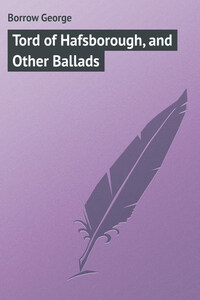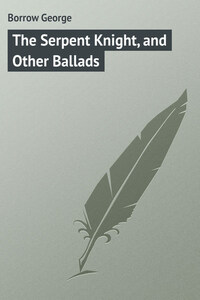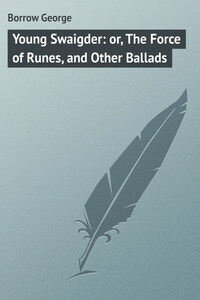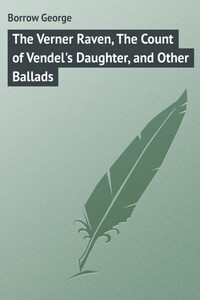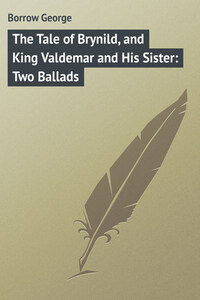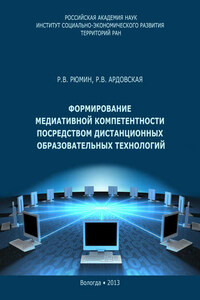Venice,
October 22nd, 1844.
My Dearest Carreta,
I arrived this day at Venice, and though I am exceedingly tired I hasten to write a line to inform you of my well-being. I am now making for home as fast as possible, and I have now nothing to detain me.
Since I wrote to you last I have been again in quarantine for two days and a half at Trieste, but I am glad to say that I shall no longer be detained on that account. I was obliged to go to Trieste, though it was much out of my way, otherwise I must have remained I know not how long in Corfu, waiting for a direct conveyance. After my liberation I only stopped a day at Corfu in order that I might lose no more time, though I really wished to tarry there a little longer, the people were so kind. On the day of my liberation I had four invitations to dinner from the officers. I, however, made the most of my time, and escorted by one, Captain Northcott, of the Rifles, went over the fortifications, which are most magnificent. I saw everything that I well could, and shall never forget the kindness with which I was treated. The next day I went for Trieste in a steamer, down the whole length of the Adriatic. I was horribly unwell, for the Adriatic is a bad sea, and very dangerous; the weather was also very rough. After stopping at Trieste a day, besides the quarantine, I left for Venice, and here I am, and hope to be on my route again the day after to-morrow. I shall now hurry through Italy by way of Ancona, Rome, and Civita Vecchia to Marseilles in France, and from Marseilles to London, in not more than six days’ journey. Oh, I shall be so glad to get back to you and my mother (I hope she is alive and well) and Hen. 1
I am glad to hear that we are not to have a war with those silly people, the French. The idea made me very uneasy, for I thought how near Oulton lay to the coast.
You cannot imagine what a magnificent old town Venice is – it is clearly the finest in Italy, although in decay; it stands upon islands in the sea, and in many places is intersected with canals. The Grand Canal is four miles long, lined with palaces on either side. I, however, shall be glad to leave it, for there is no place to me like Oulton, where live two of my dear ones. I have told you that I am very tired, so that I cannot write much more, and I am presently going to bed, but I am sure that you will be glad to hear from me however little I may write.
I think I told you in my last letter that I had been to the top of Mount Olympus, in Thessaly. Tell Hen that I saw a whole herd of wild deer bounding down the cliffs, the noise they made was like thunder. I also saw an enormous eagle – one of Jupiter’s birds, his real eagles, for according to the Grecian mythology Olympus was his favourite haunt. I don’t know what it was then, but at present it is the most wild, savage place I ever saw; an immense way up I came to a forest of pines; half of them were broken by thunder-bolts, snapped in the middle, and the ruins lying around in the most hideous confusion; some had been blasted from top to bottom and stood naked, black, and charred, in indescribable horridness. Jupiter was the god of thunder, and he still seems to haunt Olympus. The worst is there is little water, so that a person might almost perish there of thirst: the snow-water, however, when it runs into the hollows is the most delicious beverage ever tasted – the snow, however, is very high up. My next letter I hope will be from Marseilles, and I hope to be there in a very few days.
Now, God bless you, my dearest. Write to my mother, and kiss Hen, and remember me kindly to Lucy and the Atkinses.
53aPall Mall,
Saturday [1854].
Dear Carreta,
I am thinking of coming to you on Thursday. I do not know that I can do anything more here, and the dulness of the weather, and the mists, are making me ill.
Please to send another five pound note by Tuesday morning. I have spent scarcely anything of that which you sent, except what I owe to Mrs. W., but I wish to have money in my pocket, and Murray and Cooke are going to dine with me on Tuesday.
I shall be glad to be with you again, for I am very much in want of your society. I miss very much my walks at Llangollen by the quiet canal; but what’s to be done?
Everything seems nearly at a standstill in London on account of this wretched war, at which it appears to me the English are getting the worst, notwithstanding their boasting. They thought to settle it in an autumn’s day; they little knew the Russians, and they did not reflect that just after autumn comes winter, which has ever been the Russian’s friend.
Have you heard anything about the rent of the cottage? I should have been glad to hear from you this morning.
Give my love to Hen, and may God bless you, dear.
Keep this.

